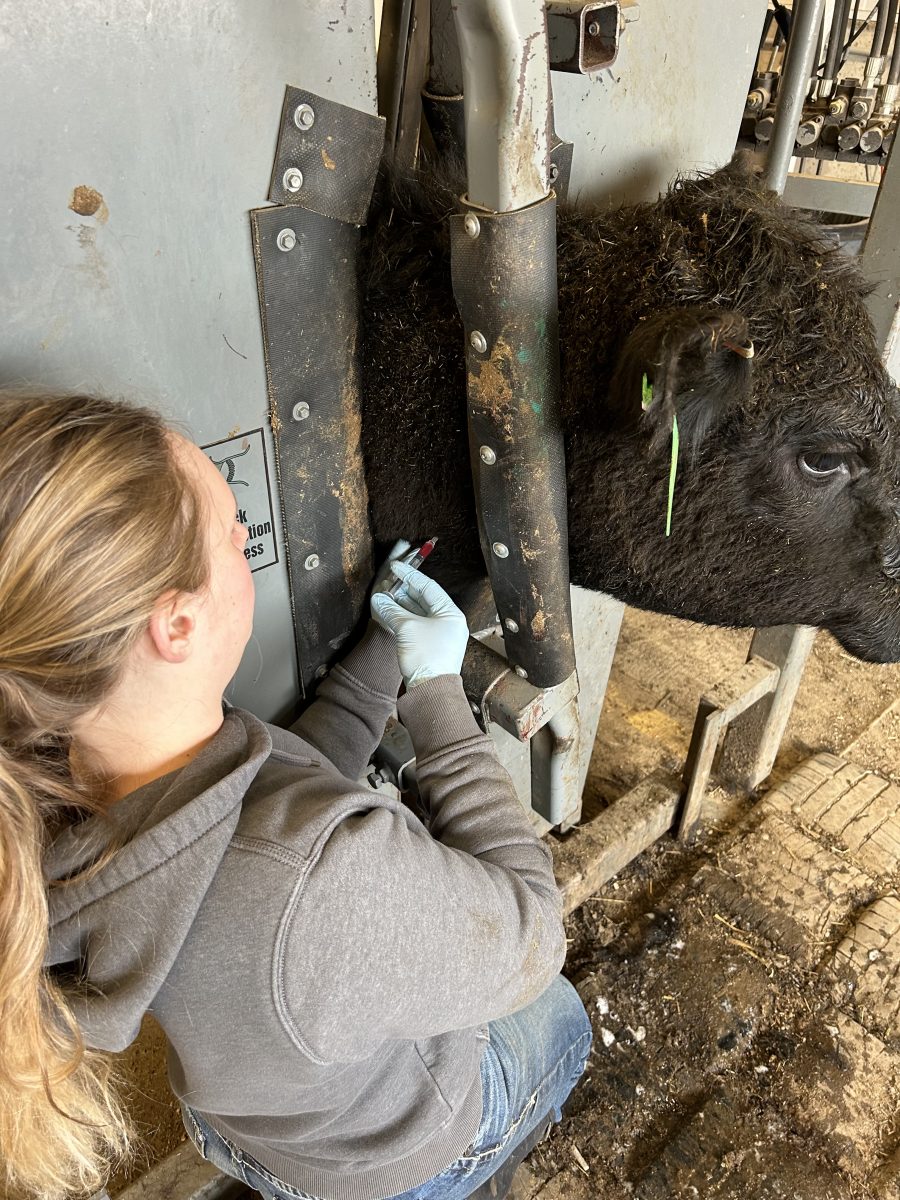Students taking classes in the Department of Agronomy, Horticulture and Plant Science are learning that growing their own food requires getting a little dirty through an outdoor garden classroom called the Local Foods Education Center.
The center is 1.2 acres of land located on Medary Avenue north of campus. Here, South Dakota State students grow a wide variety of vegetables from basic garden plants to specialty crops.
David Wright, head of the Department of Agronomy, Horticulture and Plant Science, said the Local Foods Education Center, along with 13 acres on Hansen Research Center on the Highway 14 bypass, is used for new courses and local food courses in the fall, spring and summer semesters.
“The Local Foods Education Center is designed to help students and our community members increase their awareness of methods to produce locally grown food,” Wright said.
The center produced 3,500 pounds of produce last year but estimates a harvest of approximately 5,000 pounds this year, horticulture instructor Brett Owens said.
In the past two years, 75-100 students have been involved with the project. This includes seven summer interns and two unpaid interns for special projects and courses. SDSU students earn credit for working at the gardens by taking the local foods class.
“It’s important for [the younger] generation to know that the food that we have available there is grown right here, and we are able to teach you how it’s grown,” Owens said. “We want to provide healthy food to the student body grown by the student body.”
As a part of the course, students plan what will be grown. Eastern South Dakota has a unique climate, so planning tests their understanding of horticulture and selection of crops for South Dakota.
They also get to see their food used in Brookings.
The produce is donated to local food banks in Brookings. SDSU is developing relationships with local producers, but food will not be sold off-campus because the university aims to avoid competing with farmers, Owens said.
University officials are currently considering allowing produce grown on campus to be sold in C-stores. This would make for affordable options for students, Owens said.
“College students need to eat healthy first and foremost,” said Sarah McClure, a junior agricultural education student who is involved in the program.
The center is working on gaining access to infrastructural technologies to help crop production in the winter months. The right environment would create year-round food production in the center.
According to Wright, the center creates an opportunity for students to learn about small-scale farming. SDSU has classes about small-scale food production and how these methods can be used in communities throughout the Great Plains and Midwest.
Through the center, students can also learn work with microgreens and hydroponics as well as aquaponics and aeroponic systems.
Wells Fargo and anonymous donors have donated money to kickstart the center. The university has also put in money to build the facilities.
“We want to make sure that the student community enjoys access to fresh foods,” Wright said. “The university has a responsibility with the Education Center to share the benefits of student work.”






















